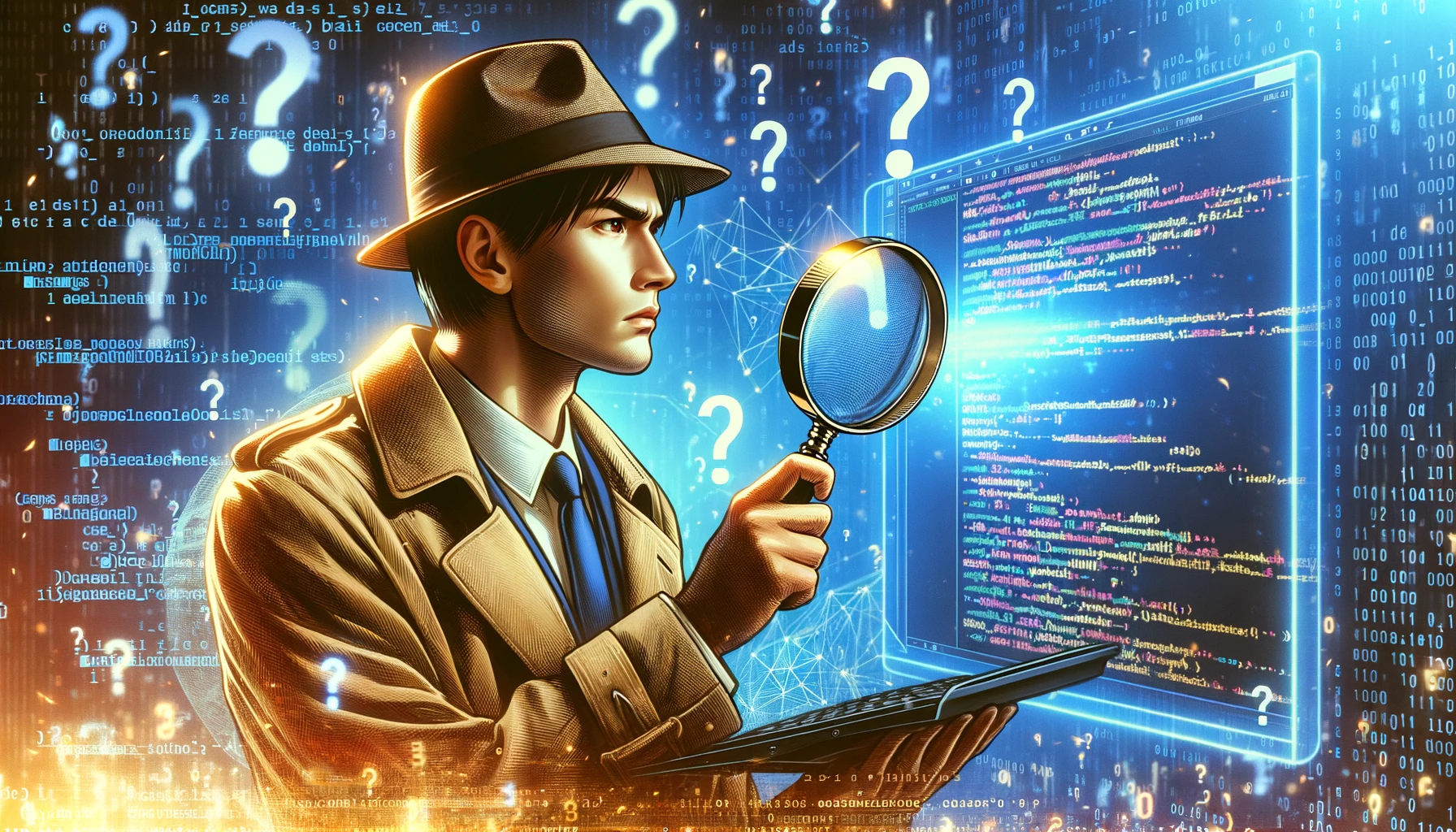Decoding Code Comments: The Art of Crime Scene Investigation in Programming
 Arpit Dwivedi
Arpit Dwivedi
The dimly lit room, scattered with lines of code, tells a story. It's a tale of logic, functions, and algorithms, but often, like a suspenseful crime novel, there's a mystery lurking. The investigator? Every developer who's tasked with reading someone else's code—or even their own code from months ago. Enter the realm of code commenting, the unsung hero that can either make this investigation a breeze or turn it into a convoluted thriller.
The Crime Scene: Your Codebase
Imagine a crime scene where the evidence is misplaced, witnesses are not documented, and the sequence of events is muddled. In the world of programming, this is akin to a codebase without proper comments. Without the necessary context, developers can feel lost, spending hours, if not days, trying to piece together the logic and intentions behind certain code blocks.
The Importance of the 'Why'
Most developers are trained to spot the 'what' in a codebase. The 'what' is like the visible evidence at a crime scene—the broken window, the misplaced item. In code, it's the loops, conditionals, and functions. But the real mastermind, the motive behind the crime, is the 'why.'
Just as detectives dig deeper to understand why a crime was committed, developers must comprehend why certain code exists. This is where comments play a pivotal role. A simple comment explaining why a particular workaround was used or why a specific library was chosen can save hours of confusion.
Commenting with Intention
It's not enough to just comment; one must comment with intention. Here's how:
Be Precise: Just as every piece of evidence at a crime scene is meticulously documented, every comment in your code should be precise. Avoid vague statements. Instead, be clear about what a particular function does or why a certain approach was taken.
Avoid Redundancy: If the 'what' is evident, don't clutter your code with unnecessary comments. For example, writing a comment like
// incrementing the counterfor a line that sayscounter++is redundant.Document Assumptions: Every detective makes certain assumptions while solving a case. Similarly, developers often make assumptions while coding. These assumptions, whether they're about the data format, user behavior, or external dependencies, should be documented.
Keep It Updated: Just as a detective's understanding of a case evolves with new evidence, your understanding of a project can change over time. Ensure that your comments reflect the most recent understanding of your code.
The Future of Code Commenting
With advancements in AI and machine learning, there's a burgeoning field of tools designed to auto-generate code comments. While these can be helpful, they often address the 'what' and not the 'why.' Human intuition and understanding remain paramount in conveying the deeper nuances of a codebase.
In Conclusion
The next time you dive into your code, think of yourself as a detective stepping onto a crime scene. Your comments are the breadcrumbs, the notes, the witness statements that will help any developer, including your future self, solve the mystery with ease.
As with any crime scene investigation, the goal is to reach a clear resolution. In the world of coding, this resolution is understanding. So, comment with intention, prioritize the 'why' over the 'what', and make your codebase a well-documented, easily decipherable story.
Subscribe to my newsletter
Read articles from Arpit Dwivedi directly inside your inbox. Subscribe to the newsletter, and don't miss out.
Written by

Arpit Dwivedi
Arpit Dwivedi
Crafting code with a finesse that bridges the digital divide! As a Full Stack Developer, I’ve conjured innovations at industry front-runners like Infosys and Kline & Company. With a suite boasting C#, ASP.NET CORE, Angular, and the complex dance of microservices, I’m not just programming – I’m telling stories. Beyond raw code, I'm a tech translator, dishing out insights as an avid writer, leading the charge in the open-source world, and floating on the Azure cloud. From corporates to intense tech programs, my journey’s been anything but ordinary. Curiosity? It's not just a sidekick; it's my co-pilot. Eagerly scanning the horizon for the next tech marvel. 🚀